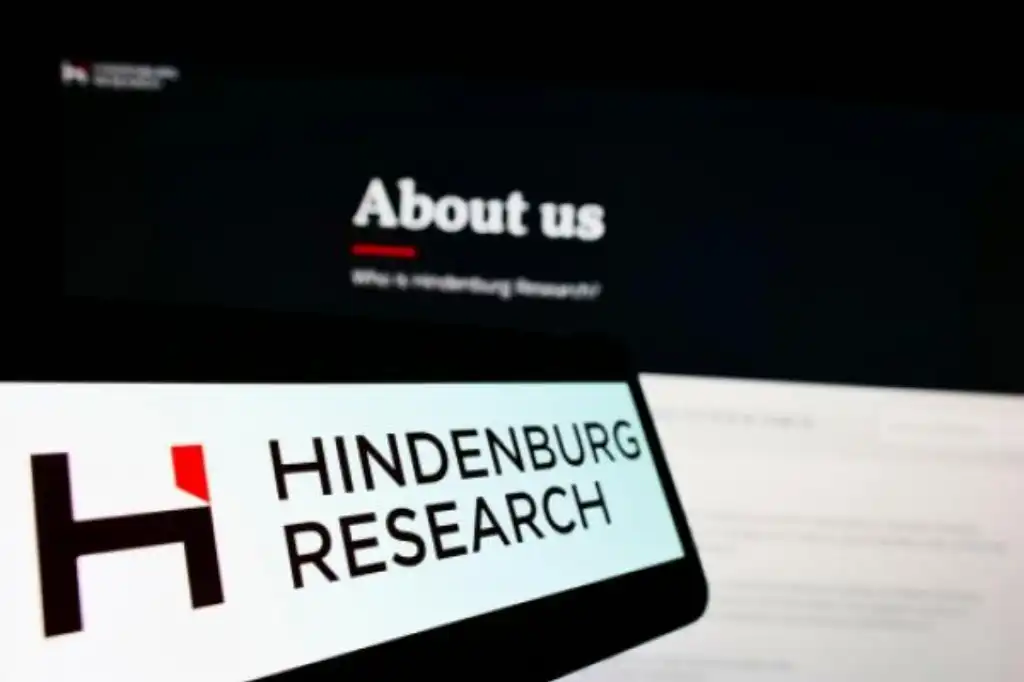Hindenburg Research is a financial research and investigation firm that focuses on exposing fraudulent and unethical practices in the business world. The firm, founded in 2018, has gained recognition for its investigative work uncovering a number of high-profile cases of corporate wrongdoing and malfeasance.
Hindenburg Research’s approach is to conduct in-depth research and analysis on publicly traded companies and their financial statements, business practices, and governance structures. The firm then publishes its findings in detailed reports, often accompanied by supporting evidence, in order to raise awareness about potential issues and encourage stakeholders to take action.
One of Hindenburg Research’s most notable cases was its investigation into electric vehicle maker Tesla, Inc. In 2019, the firm published a report alleging that the company was overvaluing its solar panel business and inflating its production numbers for its vehicles. The report was widely reported on in the media, and Tesla’s stock price temporarily dropped as a result.
Another high-profile case involved the gene editing company CRISPR Therapeutics. In 2020, Hindenburg Research published a report accusing the company of hiding key information from investors and artificially inflating its stock price. The report led to a significant drop in CRISPR’s stock price, and prompted an investigation by the US Securities and Exchange Commission.
In addition to its investigative work, Hindenburg Research also provides consulting services to investors and other stakeholders, helping them to better understand the risks and opportunities associated with publicly traded companies. The firm’s expertise and reputation for rigorous research has made it a go-to source for investors looking to make informed investment decisions.
While Hindenburg Research has been praised for its work in exposing corporate wrongdoing, it has also faced criticism from some quarters. Some have accused the firm of spreading misinformation and engaging in short selling, which is the practice of selling stocks in the hopes of buying them back at a lower price. However, Hindenburg Research has consistently maintained that its research is thoroughly researched and impartial, and that its goal is to help protect investors and promote good governance.
Hindenburg Research is a unique and important player in the financial world, known for its in-depth research and investigative work in exposing corporate wrongdoing. The firm’s work has had a significant impact on the business world, and has helped to promote greater transparency and accountability in the business world.
Money Matters: The Results of Hindenburg Research’s Tesla Investigation

Hindenburg Research’s investigations added more value to Tesla’s shares
In 2019, Hindenburg Research published a report that claimed that electric vehicle maker Tesla, Inc. was overvaluing its solar panel business and inflating its production numbers for its vehicles. The report was based on an in-depth investigation that included a review of Tesla’s financial statements, production reports, and other public documents, as well as interviews with former employees and industry experts.
According to the report, Tesla was using aggressive accounting practices to present a more favorable financial picture to investors, including recognizing revenue from sales of its solar panels that were not yet installed. The report also claimed that the company was significantly overstating its production numbers for its vehicles, and that the quality and durability of its solar panels was subpar compared to those of its competitors.
The report accused Tesla of making false and misleading statements about its technology, and argued that the company was overvaluing its solar panel business by hundreds of millions of dollars. The report also raised concerns about the company’s capital expenditures, pointing out that the company was spending large sums of money on new factories and production lines, while at the same time failing to generate positive cash flow from its operations.
The publication of the report caused a significant stir in the financial community and was widely reported on in the media. Tesla’s stock price temporarily dropped as a result, and the company issued a public response refuting the allegations. Tesla CEO Elon Musk took to Twitter to defend the company, calling the report “a hit job from a short-seller.”
Despite the controversy, Hindenburg Research’s report on Tesla helped to raise important questions about the company’s business practices and financials. The report highlighted the need for greater transparency and accountability in the business world, and demonstrated the importance of conducting thorough research and analysis before making investment decisions.
Hindenburg Research’s findings on Tesla were a wake-up call for investors and a reminder of the potential risks associated with investing in fast-growing technology companies. The report was a testament to the firm’s commitment to uncovering corporate wrongdoing and promoting good governance in the business world.
This is not the first time Hindenburg Research has accused Adani Group

It’s not the first time that the Adani Group has been under Hindenburg Research’s radar.
Hindenburg Research published a report in 2020 on Adani Group, a conglomerate based in India, alleging that the company was involved in a variety of unethical and potentially illegal activities. The report claimed that Adani Group was using its political connections to secure favorable treatment from the Indian government, and was involved in a number of controversial projects, including the development of a large coal mine in Australia that was opposed by environmental activists.
According to the report, Adani Group had a history of environmental violations, labor abuses, and corruption, and was using its vast wealth and political influence to further its business interests. The report also raised concerns about the company’s accounting practices, and claimed that Adani Group was engaging in a number of financial maneuvering that obscured the true state of its financial health.
The publication of the report sparked a heated debate in India and was widely reported on in the media. Adani Group issued a public response denying the allegations, but the report prompted calls for increased scrutiny of the company’s business practices and a closer look at the relationship between Adani Group and the Indian government.
Hindenburg Research’s report on Adani Group highlighted a number of important issues and concerns related to corporate transparency and accountability, and helped to shine a spotlight on some of the challenges and risks facing investors in the emerging markets of Asia. The report was a testament to Hindenburg Research’s commitment to uncovering corporate wrongdoing and promoting good governance in the business world.
Is Hindenburg Research credible?

It’s easy to blame: Hindenburg Research lacks accountability due to a lack of jurisdiction.
Hindenburg Research produces in-depth and thought-provoking reports on public companies. They conduct extensive research and analysis of financial statements and public disclosures to uncover potential fraud or unethical practices.
Financial and investment communities widely regard Hindenburg Research’s work as credible. Their reports have sparked important discussions and debates on corporate governance, accounting practices, and public company responsibilities. However, Hindenburg Research profits from betting against the success of the companies they research, raising questions about potential conflicts of interest.
Companies often deny Hindenburg Research’s allegations and debate continues on the validity of their claims. Credibility of Hindenburg Research depends on the quality of their research and the evidence they uncover to support their claims. Despite being controversial, Hindenburg Research’s work is widely seen as valuable for discussions on corporate governance and accountability.
The Rise of Asia and India: Understanding Western Interest
Western states and media have an interest in Asia and India for several reasons:
- Economic Importance: Asia and India are some of the fastest-growing economies in the world and have become key players in the global economy. This has made them important targets for investment and trade opportunities for Western businesses.
- Demographic Importance: Asia and India are home to some of the world’s largest populations and have significant consumer markets. This makes them a key focus for companies seeking to reach new customers and expand their businesses.
- Strategic Importance: Asia and India are strategically important regions due to their geopolitical and military significance. They are located near major shipping lanes and are home to several nuclear powers, making them critical to global security and stability.
- Cultural Importance: Asia and India have rich cultural traditions and unique perspectives that are of interest to Western states and media. This includes traditional arts and crafts, music, literature, philosophy, and more.
- Technological Advancement: Asia and India are home to several cutting-edge technology companies and have made important contributions to areas such as computer science, engineering, and biotechnology.
Overall, the combination of economic, demographic, strategic, cultural, and technological factors makes Asia and India of significant interest to Western states and media.

